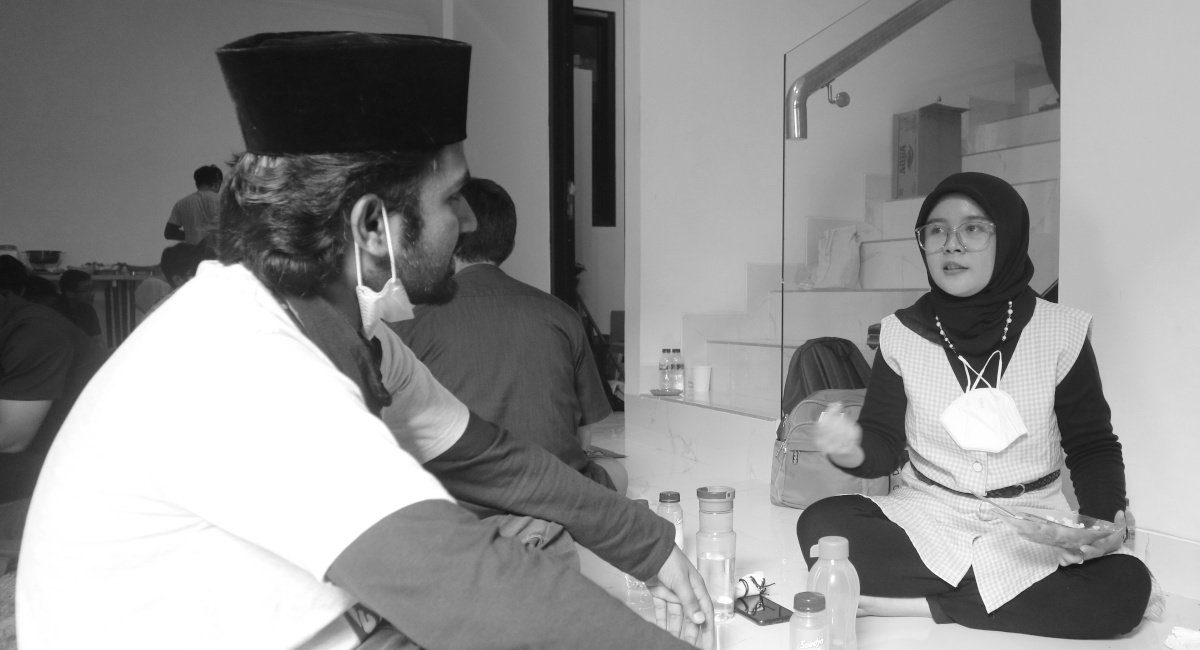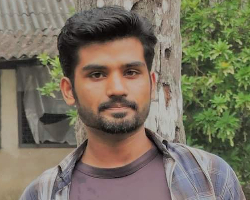
Besides the online sessions, APTEP also included a field exposure. So on 6 August, 28 scholastics from Kolese Hermanum with Fr Soetomo headed to Al Bukhari Institute, which was roughly an hour’s journey. A member of the institute’s staff, Wildan Imaduddin, welcomed us with cold drinks and snacks. Later he shared with us the story of the institute. Their focus is the study of the Sunnah and the Hadith–the traditions of the prophets–and to share them with the laity.
After our conversation with him, we were introduced to the other members of the staff and some female students. In our group, five scholastics were from Pakistan, four from Myanmar, three from Thailand, and 14 from Indonesia. Some two to three scholastics from each country were asked to share their experience of living together with Muslims. Surprisingly, the scholastics from Myanmar and Thailand had never before met Muslims until they came to Indonesia. Whatever knowledge they had about Muslims, which was mostly negative, came from the news and social media. So they had prejudices until they met Muslims in Indonesia and their perspective changed.
The scholastics from Pakistan shared that religious disharmony still exists in Pakistan and that it is very important to form a peaceful and healthy society. The Indonesian scholastics shared likewise. Everybody listened to each other with care and concern. Pak Wildan told us that many a time Islam is misunderstood, even by Muslims themselves. So it is very important that both Muslims and Christians study our own religion well and then dialogue with each other towards a harmonious society. At the end of our discussion, we shared a meal together, which made the occasion more meaningful.
From Al Bukhari institute, we visited next the office of Migrant Care. The director, Anis Hidayah, who was dressed in traditional batik, welcomed us warmly with coffee and fruits. The stories she shared were quite thrilling. She told us about the challenges of working with refugees and migrants. Currently, she is helping Indonesian employees, many of whom are Muslims, who have legal issues in the Philippines and Cambodia. We all acknowledged the importance of her organisation and said we would try to send a few scholastics to help out.
We continued our field exposure the following Monday. We visited UNUSIA (University of Nahdlatul Ulama Indonesia). Nahdlatul Ulama is one of the biggest Islamic progressive organisations in the world. It was founded in 1926 to counter fundamentalism. It is also a charitable organisation working to alleviate poverty. In UNUSIA, Dr Ayatullah shared about Islam Nusantara, which means “Islam of the Indonesian archipelago”. The term was coined by the scholars of Nahdlatul Ulama as an alternative to the Arabisation of Islam. We also shared our experiences with Muslims and had a good conversation about dialogue with the university’s staff and students.
Right across UNUSIA is Wahid Foundation. The interesting thing about this foundation is that it is run by young people. They hold progressive ideas and views about Islam, interreligious dialogue, religious harmony, and peace. Siti Kholisoh, a staff member, spoke about the peace village community in Indonesia, whose main focus is to promote harmony with different communities. Interestingly, this wonderful group of peace advocates consists mainly of women. There was an atmosphere of openness and we felt very comfortable sharing and listening to one another’s stories and insights.
The experience of APTEP left us much inspired to prepare ourselves well for the mission of peacebuilding.







